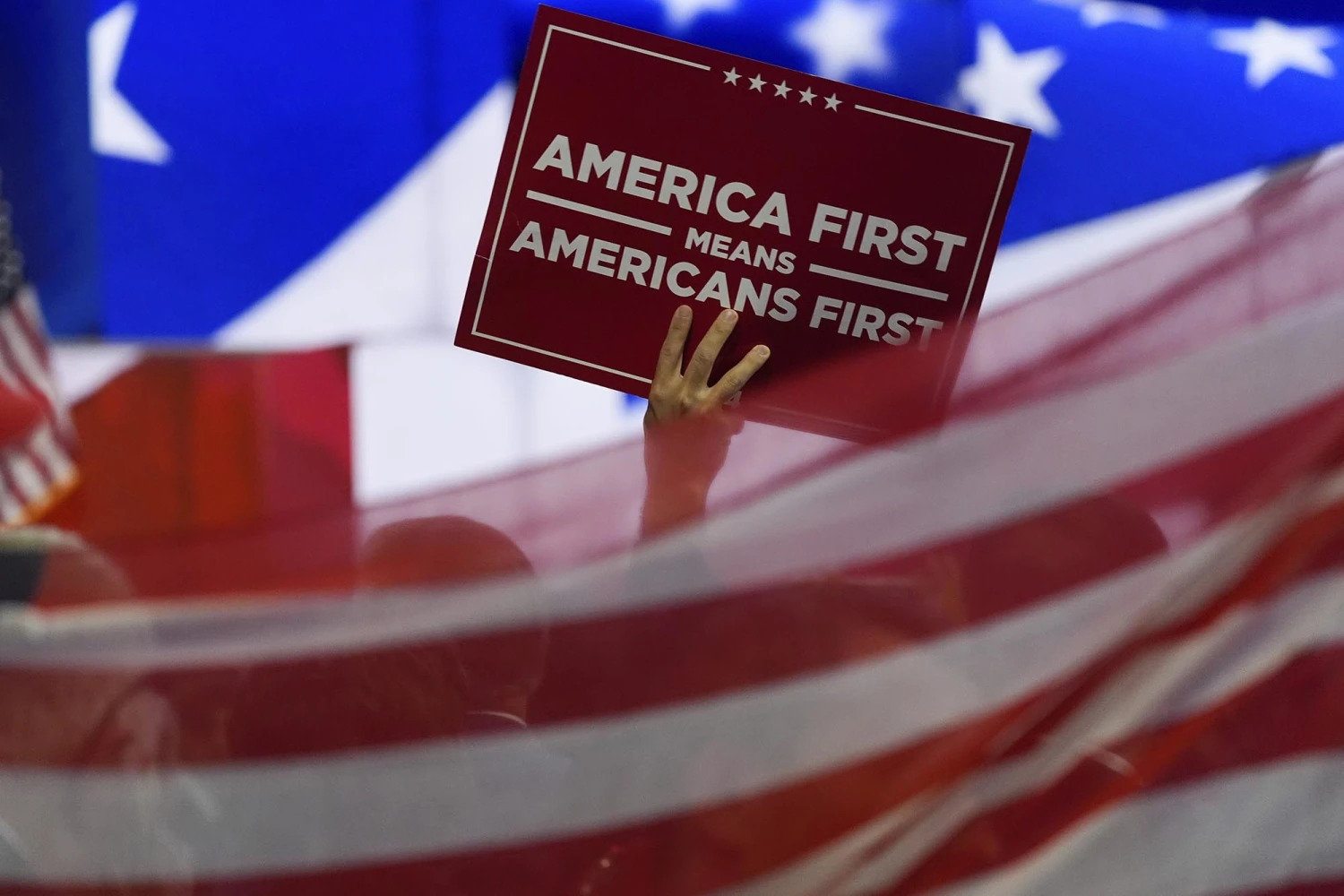
Warwick Powell, Adjunct Professor at Queensland University of Technology, Senior Fellow at Beijing Taihe Institute
Dec 22, 2025
In the waning days of 2025, the United States unveiled its National Security Strategy (NSS), a document that reads less like a blueprint for global dominance and more like the confessions of a fading hegemon. Penned in the shadow of economic strains, industrial atrophy, and military overstretch, the NSS trumpets “America First” while subtly shifting the burdens of empire onto allies.
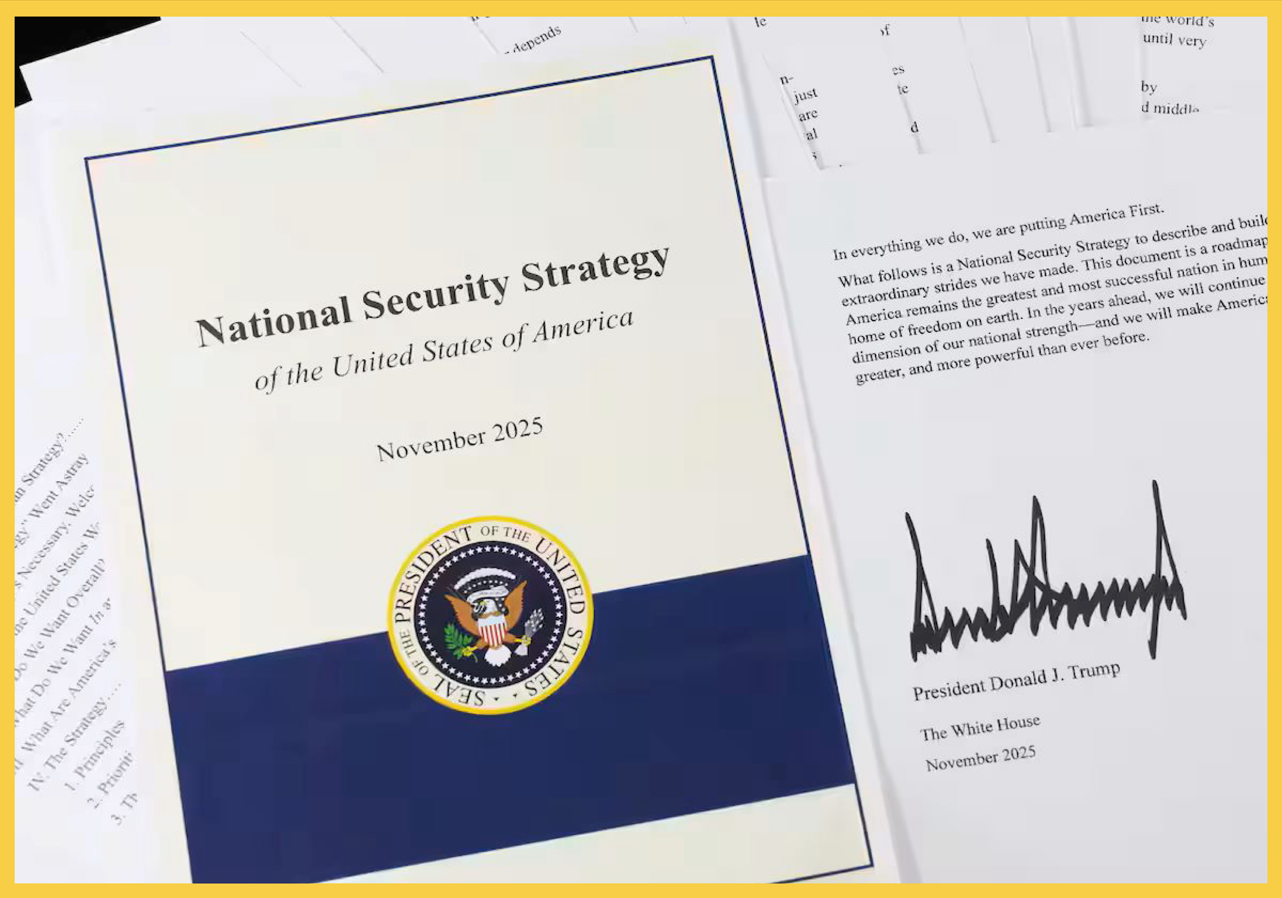
Diao Daming, Professor at School of International Studies and Deputy Director of Center for American Studies, Renmin University
Dec 19, 2025
The new White House National Security Strategy provides a critical window for understanding America’s view of the roles of major powers and the international order. But Donald Trump’s brash and unpredictable personal characteristics are a wild card that will keep the world in suspense.

Mallie Prytherch, Researcher at Centre on Contemporary China and the World, University of Hong Kong
Dec 19, 2025
The first Trump–Xi summit since 2025 brought high hopes and headline deals on trade, fentanyl, and rare earths, but diverging goals and ambiguous promises hint at the fragility of this latest U.S.–China rapprochement. The United States secured pledges on curbing fentanyl flows, increased agricultural purchases, and the removal of export controls on rare earths, while emphasizing symbolic gains in respect and stability.
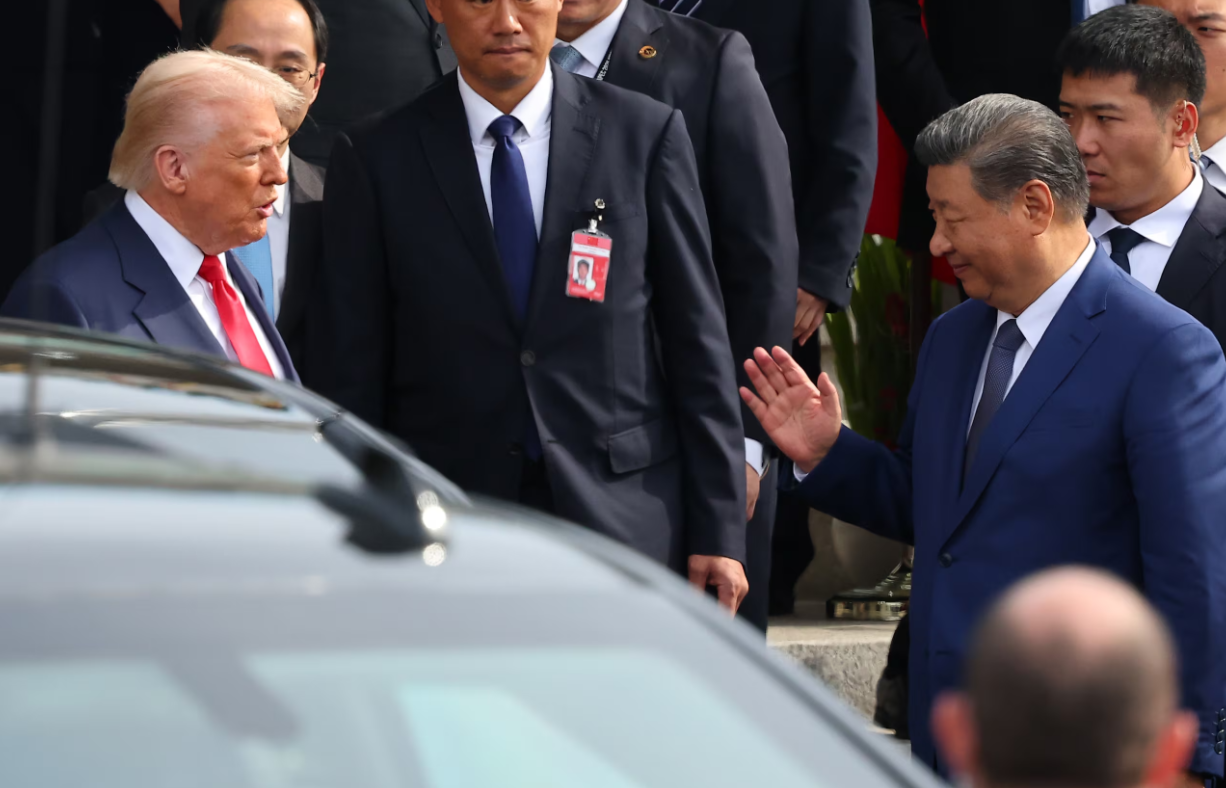
Brian Wong, Assistant Professor in Philosophy and Fellow at Centre on Contemporary China and the World, HKU and Rhodes Scholar
Dec 08, 2025
Trump and Xi’s latest meeting was a remarkable display of amiability between the U.S. and China, yet the conflicts at hand saw no progress toward resolution.
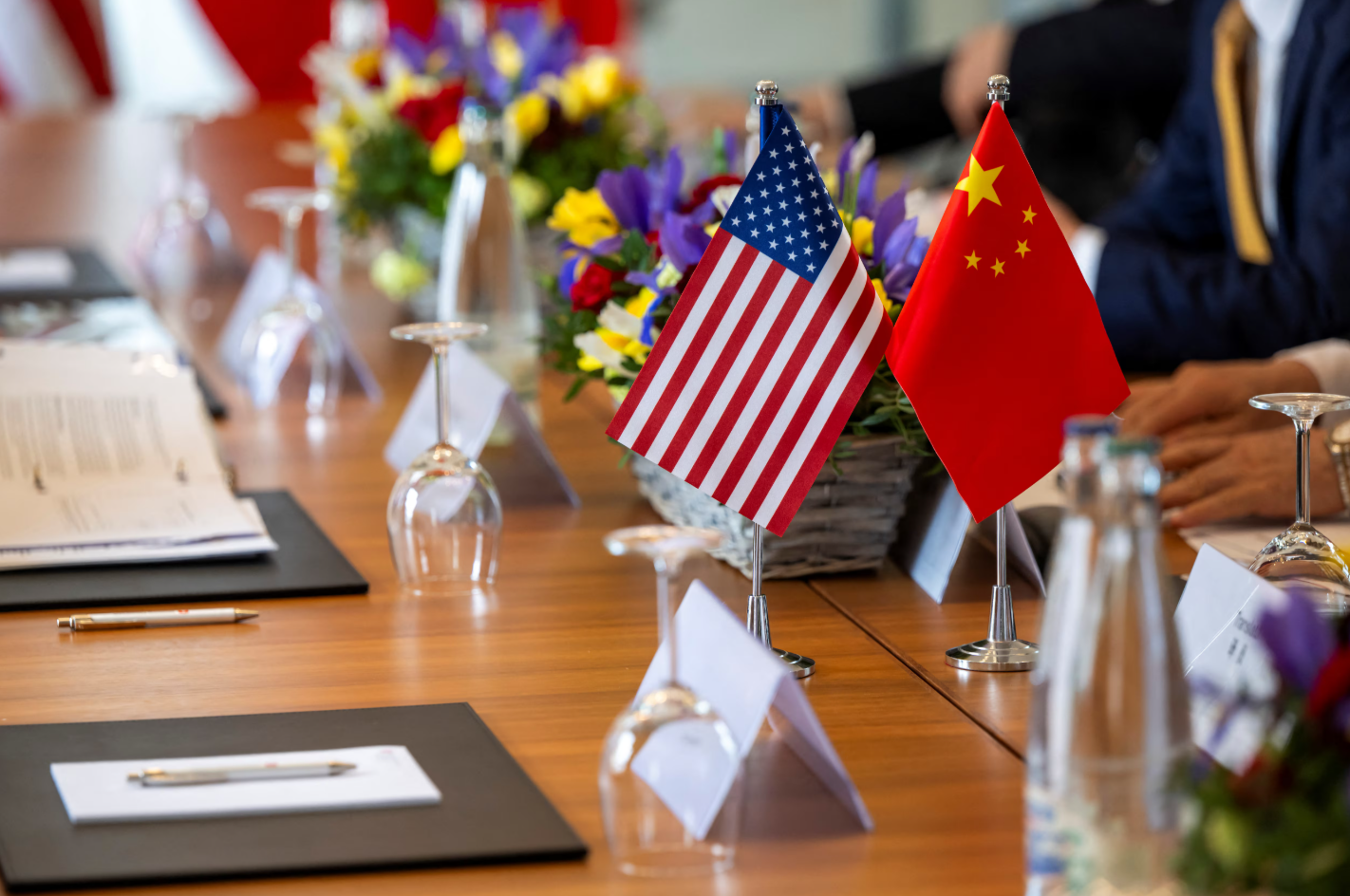
Zhang Tuosheng, Principal Researcher at Grandview Institution, and Academic Committee Member of Center for International Security and Strategy at Tsinghua University
Dec 02, 2025
China and the U.S. must avoid both the Thucydides trap and the Cold War trap. This is not only in their strategic interest but also that of other countries in the region and around the world. Both sides must make major efforts jointly and in a sustained manner.
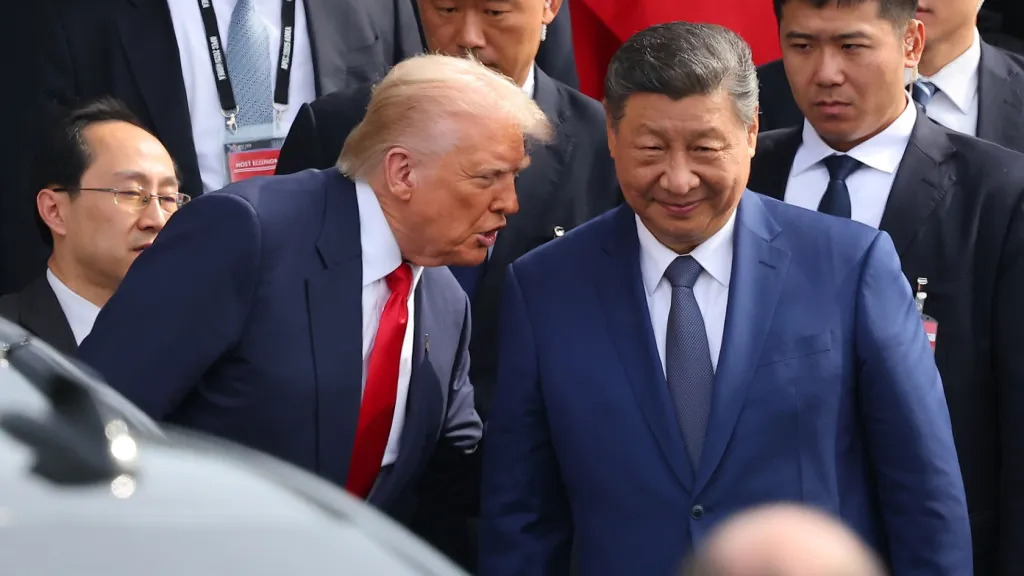
Guo Jinyue, Associate Research Fellow at Department for American Studies, China Institute of International Studies
Nov 28, 2025
The meeting of two presidents in South Korea laid a solid foundation for the future. Both China and the U.S. will exist for a long time on this planet, and that continuity should be reflected in all their relations. They have charted a new course for mutual success.
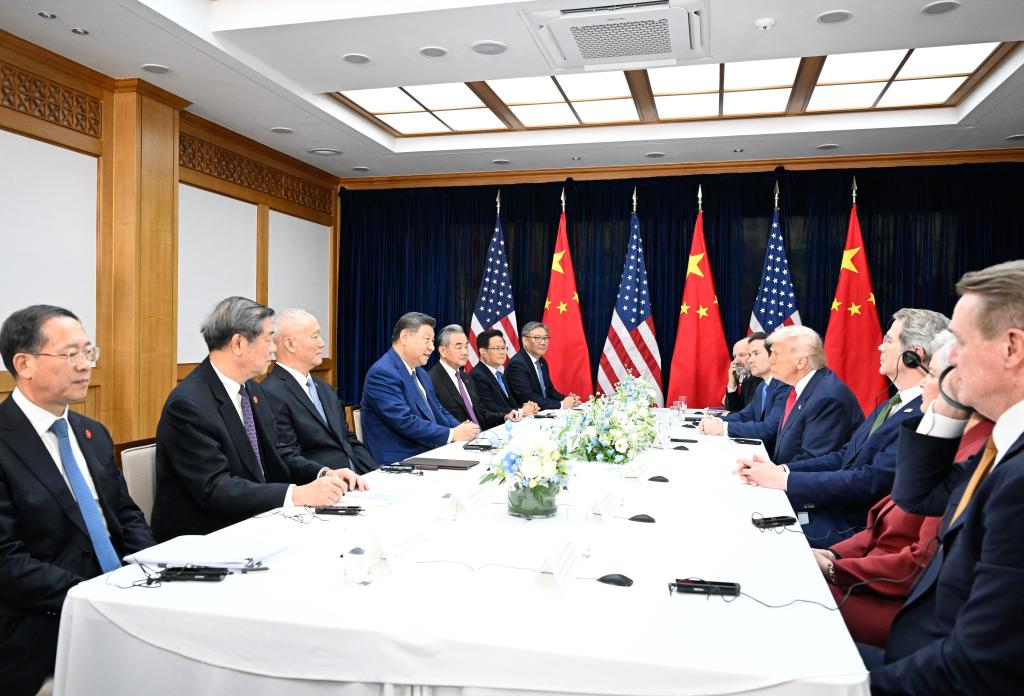
Richard Weitz, Senior Fellow, Hudson Institute
Nov 21, 2025
The meeting between the Chinese and U.S. presidents in South Korea at the end of October resolved some issues but left many unanswered. These deferred questions will likely drive next year’s Sino-American policy agenda.
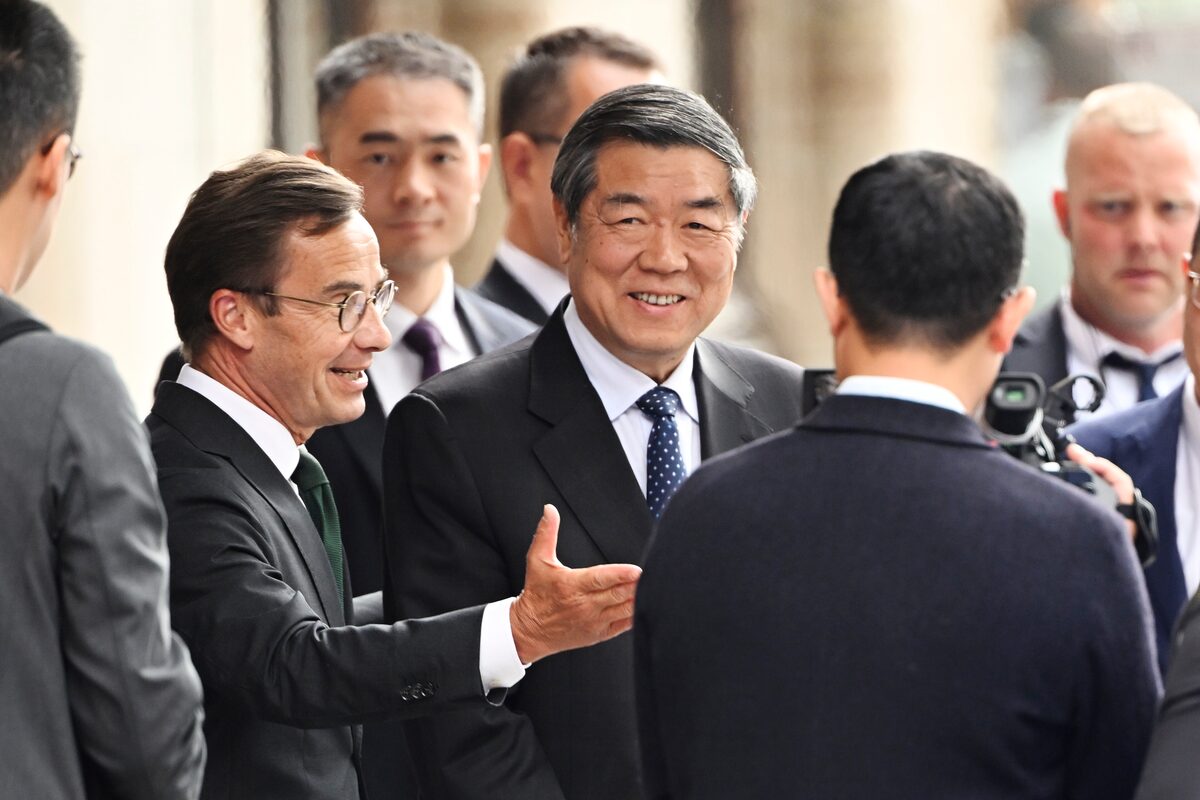
Yu Xiang, Senior Fellow, China Construction Bank Research Institute
Nov 21, 2025
In an era marked by trust deficits at the national level, individual businesses have emerged as key vehicles for pragmatic coexistence. Their fundamental rationality may make them, under certain conditions, the only entities capable of maintaining equilibrium.

Sun Chenghao, Fellow, Center for International Security and Strategy of Tsinghua University; Munich Young Leader 2025
Wu Kexi, Research Assistant, China University of Political Science and Law
Nov 03, 2025
In a significant recalibration, the Busan summit helped stabilize China-U.S. relations, which now appear unlikely to return to the past or fall into confrontation. Both sides will instead seek equilibrium through communication and prudent action.

David Shambaugh, Gaston Sigur Professor and Director of China Policy Program at George Washington University, Distinguished Visiting Fellow at Hoover Institution of Stanford University
Nov 03, 2025
The first in-person meeting between Presidents Trump and Xi in six years focused almost exclusively on trade and technology, resulting in a temporary rollback of tariffs and export restrictions but producing no new agreements or progress on broader security or geopolitical issues. The meeting largely served to stabilize U.S.-China relations and decrease tensions, with both leaders agreeing to reciprocal visits in 2026 for further discussions, effectively “kicking the can down the road” on deeper bilateral challenges.
Back to Top

- China-US Focus builds trust and understanding between the U.S. and China through open dialogue among thought leaders.
- Our Offerings
- Topics
- Videos
- Podcasts
- Columnists
- Research Reports
- Focus Digest
- Stay Connected
-
Thanks for signing up!
- Get the latest stories from China-US Focus weekly.